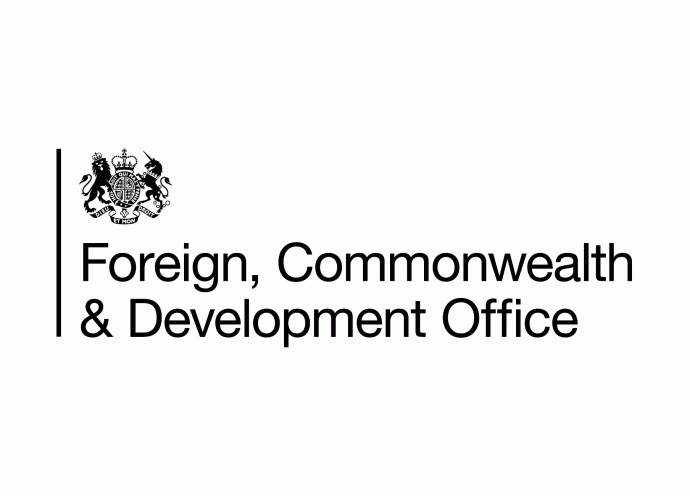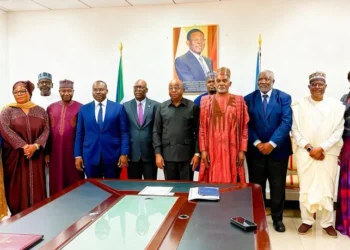Lord (Tariq) Ahmad of Wimbledon, British Minister of State for the Middle East, South Asia, UN and the Prime Minister’s Special Representative on Preventing Sexual Violence in Conflict reaffirmed the close ties between the United Kingdom and Egypt during his second visit to the country, engaging in several meetings with key Egyptian interlocutors.
Meeting with Egypt’s Minister of Foreign Affairs, H.E. Sameh Shoukry, Lord Ahmad discussed the situation in Israel and the Occupied Palestinian Territories, thanking Egypt for its unceasing efforts to promote peace and reduce tensions between the two sides. The minister was clear that the UK firmly rejects violence and unilateral action which will only serve to exacerbate tensions, undermining efforts to achieve a negotiated two-state solution. The two ministers also discussed Russia’s invasion of Ukraine, and the negative effect the conflict has had on the world economy, including in the MENA region.
Lord Ahmad later met the Grand Imam of al-Azhar, Sheikh Ahmed Al-Tayyab, as well as with His Holiness Pope Tawadros II, Head of the Coptic Orthodox Church. In his meetings with both leaders, he discussed the vital importance of religious dialogue and tolerance, especially during troubled times worldwide. Egypt has always been an example of how different faiths can live in harmony, and the minister was pleased to be able to meet with some young Azhari scholars to discuss how religion can continue to be a force for good regionally and globally.
During my visit, I have met with Egypt’s political and religious leaders to ensure our joint activity delivers positive change for the Egyptian and British people
Lord Ahmad also met with leading businesspeople and economists, exploring how UK firms can continue to work with Egyptian partners to seek out mutually beneficial investment opportunities. Under Egypt’s Presidency of COP27, UK companies have been making significant investments in the Egyptian renewables sector, including in green hydrogen, and the minister was keen to raise ambition further and identify future areas of collaboration.
At an evening suhour held at the Embassy, Lord Ahmad was also able to engage with a wide variety of prominent Egyptians from across business, government and civil society, sharing his experiences of Ramadan in the UK, and reflecting on how countries and governments can live up to the ideals of the holy month.
During his time in Egypt, Lord Ahmad also met with the family of Alaa Abd el-Fattah. He stressed that the UK continues to push for immediate consular access, and Alaa’s release, and that he had raised the matter directly with Foreign Minister Shoukry. In addition, Lord Ahmad met with Karim Ennarah to discuss his case.
Completing the visit, Lord Ahmad met with Ahmed Hatem, Egyptian actor and British Embassy social affairs ambassador, and with experts in combating gender-based violence, to discuss how the UK can support Egyptian organisations working in this field, including through the new UK fund, ‘Laha wa Maha’, which supports projects tackling gender-based violence.
Speaking after the visit, Minister of State for the Middle East Lord Ahmad said:
“The month of Ramadan teaches us to reflect on ourselves and on our connections to others, personally and professionally. In doing so, it is clear to me that the partnership between Egypt and the UK is of deep and lasting significance. From issues of regional and global concern, such as reducing tensions in Israel and the Occupied Palestinian Territories, or working together to tackle the climate crisis, to issues of bilateral importance, such as increasing mutual trade and investment, our partnership is strategic and enduring.
“During my visit, I have met with Egypt’s political and religious leaders to ensure our joint activity delivers positive change for the Egyptian and British people. This includes tackling global challenges such as the war in Ukraine, a matter which I discussed with Foreign Minister Shoukry. It also includes helping the most vulnerable in our societies, and I was delighted to meet with some of the beneficiaries of UK aid here in Egypt, through the ‘Laha wa Maha’ Fund, to hear about the change it has made to their lives. As we move forward, we must continue to discuss this full range of issues – from trade, to aid, to human rights – to strengthen our partnership further and achieve outcomes of benefit to all.”






























































